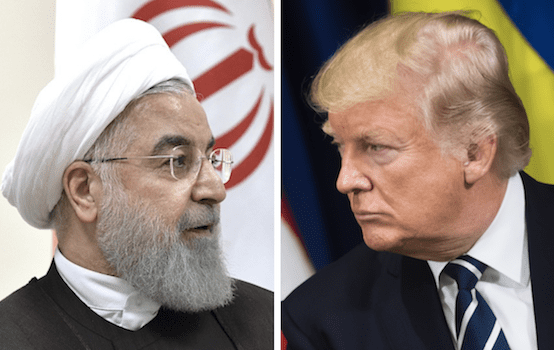Trump’s Contempt for Iran and the Failure of ‘Maximum Pressure’

Seyed Hossein Mousavian comments on how Iranians see the “maximum pressure” campaign:
For these reasons and others, many Iranians see Trump’s policies and actions not only as hostile to the interests of the Iranian government but as an assault on the integrity of the country itself.
It is understandable that many Iranians would see the Trump administration’s Iran policy this way. The administration has been seeking to inflict as much pain and damage on the entire country as possible through its economic war, and its policy has focused entirely on inflicting punishment without offering any real opportunity for relief. As Suzanne DiMaggio points out in her conversation with Joe Cirincione this week on the Press the Button podcast, “the Trump administration has been on a steady run of just ‘maximum pressure’ only.” She continues:
So when we withdrew from the deal, which is well over a year ago now, I have been advocating very quietly for creating off-ramps along the way…that we could defuse these tensions and perhaps get back to talks. But there has been no opening for off-ramps, and I don’t see any on the horizon.
The current administration has assumed that it can compel Iranian capitulation through pressure alone, and it has based this on its misunderstanding of why Iran agreed to the JCPOA and its misunderstanding of why North Korea has been willing to talk to Trump. The Trump administration wrongly believes that sanctions pressure forced Iran to negotiate last time, and they think “maximum pressure” is what brought North Korea to the table last year, and so they keep applying more and more pressure despite growing evidence that increased pressure by itself just encourages resistance and defiance. On top of that, the administration has been demanding that Iran agree to give up all enrichment, which their government is never going to do. In addition to using a sticks-only approach to dealing with Iran, it has been obvious from the start that their goals are much more ambitious and aggressive than seeking a so-called “better” deal. Not only has Trump surrounded himself with supporters of regime change and war with Iran, but administration officials have consistently made sweeping demands that would essentially require Iran to surrender on every issue where the U.S. and Iran disagree. While the administration disingenuously presents this as a demand for Iran to be a “normal” country, it is impossible for Iranians to miss that Pompeo’s preposterous demands are really a call for Iran to give up some of its independence and sovereignty. Because Trump and his officials are calling for Iran to offer a humiliating surrender, it is natural that most Iranians regard this as an insult and an attack on their country’s dignity. Even if Iran did not have a strong tradition of nationalism, this is the sort of bullying by a foreign power that would inspire people to nationalist resistance.
Iran hawks fault the Obama administration for focusing on the nuclear issue and for concluding an agreement that addressed only that issue, but that is one of the main reasons why it was possible for Iran and the P5+1 to reach an agreement. The Trump administration’s policy of regime change in all but name gives the Iranian government every reason to avoid entering talks, because Iran’s leaders have to assume that the administration won’t be satisfied by anything less than capitulation across the board. Because Obama was not seeking to humiliate them, his administration was able to make progress in negotiations on the nuclear issue. However, Trump and his officials clearly want to humiliate and weaken Iran with their sweeping and unreasonable demands, so Iran has no reason to talk to them. Where Obama emphasized mutual respect in his statements about Iran, Trump and his officials have conveyed nothing but contempt and hostility. The Iranian government would be prepared to talk to the U.S. if our government weren’t just trying to dictate terms to them under duress and threat of attack, but since that is all that the administration wants to do there won’t be anything for them to discuss.
Mousavian explains what is needed to salvage a diplomatic solution:
Iran would need to see tangible evidence of good faith. If Trump seeks a diplomatic solution to the crisis his administration unnecessarily caused, for example, he can hardly expect to achieve one without a change in his hawkish team of national security advisers. Additionally, Washington must call a cease-fire to the economic, political, and cyber war that it is waging against Iran.
This is right, but I fear that Trump is too wedded to the “maximum pressure” campaign and he has proven unwilling to toss his hard-liners overboard. Even if Trump were to make radical changes to his Iran policy in the next year, there would be almost no time left before the general election began. The president has wasted more than half of his term in office on a bankrupt Iran policy that has only caused more misery and instability, and he still doesn’t realize that the policy has already failed. If there is going to be a new diplomatic opening with Iran, it will probably have to wait until there are new presidents in both countries.